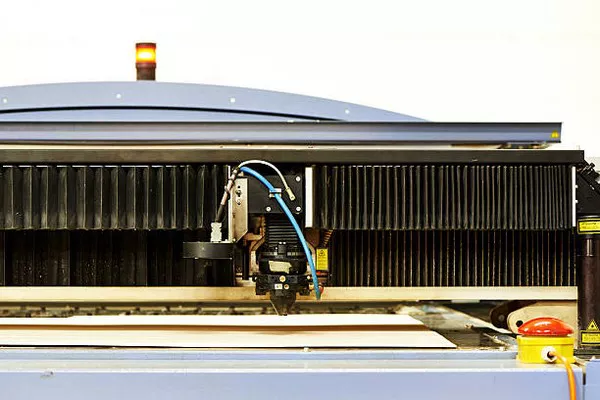In an age where reliable power is essential for both everyday life and emergency situations, generators have become vital tools for homeowners, businesses, and outdoor enthusiasts. A 9000 watt generator stands out as a versatile option capable of powering a range of devices and appliances. This article explores the capabilities of a 9000 watt generator, outlining what it can run, how to calculate power needs, and practical considerations for usage.
Understanding Generator Wattage
What Does Wattage Mean?
Wattage is a measure of electrical power, indicating how much energy a generator can provide. The wattage rating of a generator is crucial when determining what devices can be powered. A 9000 watt generator can supply a maximum of 9000 watts at any given time, but it’s important to distinguish between running wattage and starting wattage.
Running vs. Starting Wattage
Running Wattage: This is the continuous power needed to keep devices operating.
Starting Wattage: Some appliances require more power to start than to run, known as surge wattage. Understanding the difference is essential when planning your power needs.
What Can a 9000 Watt Generator Run?
Home Appliances
A 9000 watt generator can power many household appliances, making it suitable for home backup during outages.
Refrigerator
Average running wattage: 600–800 watts
Starting wattage: 1200–2000 watts
Refrigerators need extra power to start, but a 9000 watt generator can easily handle this requirement.
Freezer
Average running wattage: 600–800 watts
Starting wattage: 1200 watts
Similar to refrigerators, freezers can also be powered efficiently.
Heating/Cooling Systems
Average running wattage: 2000–5000 watts
Central air conditioning units and electric furnaces often fall within this range. A 9000 watt generator can support smaller units or a few window units simultaneously.
Water Heater
Average running wattage: 4000–4500 watts
While a 9000 watt generator can run a water heater, it may limit other appliances being powered at the same time.
Washing Machine
Average running wattage: 500–1000 watts
Starting wattage: 1200 watts
A washing machine can run smoothly without overloading the generator.
Television
Average running wattage: 100–400 watts
Televisions vary widely in wattage, but most modern sets can be easily powered.
Lights
Average running wattage: 10–100 watts per bulb
A 9000 watt generator can power multiple light fixtures throughout the home.
Tools and Equipment
For DIY enthusiasts and contractors, a 9000 watt generator provides enough power for various tools.
Power Tools
Circular saw: 1200 watts
Table saw: 1800 watts
Most common power tools can be powered effectively, but it’s crucial to check their individual wattage.
Sump Pump
Average running wattage: 800–1200 watts
Essential for flood prevention, a sump pump can run smoothly on a 9000 watt generator.
Electric Chainsaw
Average running wattage: 1200 watts
This tool can be run without concern, allowing for tree trimming and other tasks.
Recreational Use
A 9000 watt generator is perfect for outdoor events, camping, and recreational vehicles.
RVs and Campers
Air conditioning: 2000–4000 watts
A 9000 watt generator can support an RV’s power needs, including air conditioning.
Outdoor Events
Lighting and sound systems: Varies widely
Perfect for parties, a 9000 watt generator can power lights, speakers, and other equipment.
Emergency Situations
In emergencies, a 9000 watt generator can be a lifesaver.
Medical Equipment
Oxygen concentrators: 300–600 watts
Critical for individuals who rely on medical equipment, a generator can ensure power continuity.
Communication Devices
Phones and radios: 10–50 watts
Keeping communication lines open during emergencies is crucial, and a 9000 watt generator can handle multiple devices.
Calculating Your Power Needs
List Your Appliances
Create a list of devices you wish to power. Include their running and starting wattages.
Calculate Total Wattage
Add the running wattage of all devices. If multiple devices require starting wattage, ensure that the generator’s total capacity isn’t exceeded when they start.
Example Calculation
Refrigerator: 800 watts (running) + 2000 watts (starting)
Freezer: 800 watts (running) + 1200 watts (starting)
Washing Machine: 1000 watts (running) + 1200 watts (starting)
Total running wattage: 800 + 800 + 1000 = 2600 watts
Total starting wattage: 2000 + 1200 + 1200 = 4400 watts
In this scenario, a 9000 watt generator would be adequate, as it can handle the total running wattage and starting surge.
Practical Considerations
Fuel Type
Gasoline: Common and readily available but has a shorter shelf life.
Propane: Burns cleaner and has a longer shelf life, but requires special dual-fuel generators.
Diesel: Generally more fuel-efficient but can be noisy and harder to find in small quantities.
Run Time
The runtime of a generator depends on fuel capacity and load. A 9000 watt generator can run for about 8-12 hours at half load on a full tank.
Maintenance
Regular maintenance, including oil changes and air filter cleaning, is essential for longevity and performance.
Noise Levels
Generators can be noisy. If operating in a residential area or during nighttime, consider models with lower decibel ratings or invest in soundproofing enclosures.
Transfer Switch
Using a transfer switch is crucial for safely connecting a generator to your home’s electrical system, preventing back-feed into the grid.
Conclusion
A 9000 watt generator is a robust solution for various power needs, whether for home backup, outdoor adventures, or emergencies. Understanding what it can run and how to calculate power needs ensures you maximize its potential. By selecting the right fuel type, maintaining the unit, and considering safety measures, you can effectively harness the power of a 9000 watt generator to keep your life running smoothly in any situation.
Related topics:

